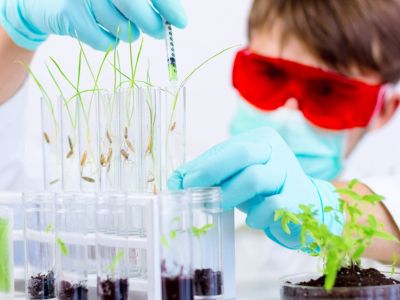GMO Seed Info
Genetically modified organisms (GMO’s) are organisms that have had their DNA altered through human intervention. There is no doubt that “improving” on nature can benefit the food supply in a number of ways in the short term, but there is much debate about the long-term effects of genetically altering seeds. How will this impact the environment? Will super-bugs evolve to feed on genetically modified plants? What are the long-term effects on human health? The jury is still out on these questions, as well as the question of contamination of non-GMO crops. Wind, insects, plants that escape cultivation, and improper handling can lead to the contamination of non-GMO crops.
What are GMO Seeds?
GMO seeds have had their genetic makeup altered through human intervention. Genes from a different species are inserted into a plant in hopes that the offspring will have the desired characteristics. There are some questions about the ethics of altering plants in this way. We don’t know the future impact of altering our food supply and tampering with the environmental balance. Don’t confuse genetically modified seeds with hybrids. Hybrids are plants that are a cross between two varieties. This type of modification is achieved by pollinating the flowers of one type with the pollen of another. It is only possible in very closely related species. The seeds collected from plants grown from hybrid seeds may have the characteristics of either of the hybrid’s parent plants, but don’t generally have the characteristics of the hybrid.
Which Seeds are GMO?
The GMO garden seeds that are available now are for agricultural crops such as alfalfa, sugar beets, field corn used for animal feed and processed foods, and soybeans. Home gardeners aren’t generally interested in these types of crops, and they are only available for sale to farmers.
Can I Buy GMO Seeds for My Garden?
The short answer is not yet. The GMO seeds that are available now are only available to farmers. The first GMO seeds to become available to home gardeners will probably be a grass seed that is genetically modified to make it easier to grow a weed-free lawn, but many experts question this approach. Individuals can, however, buy the products of GMO seeds. Floriculturists use GMO seeds to grow flowers that you can buy from your florist. In addition, many of the processed foods that we eat contain GMO vegetable products. The meat and dairy products we consume may come from animals that were fed GMO grains.
